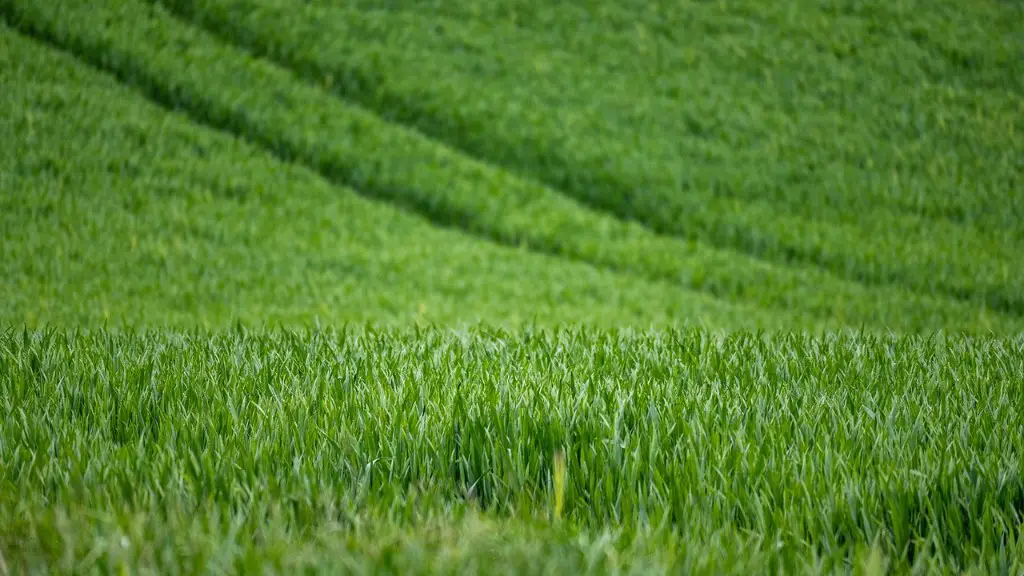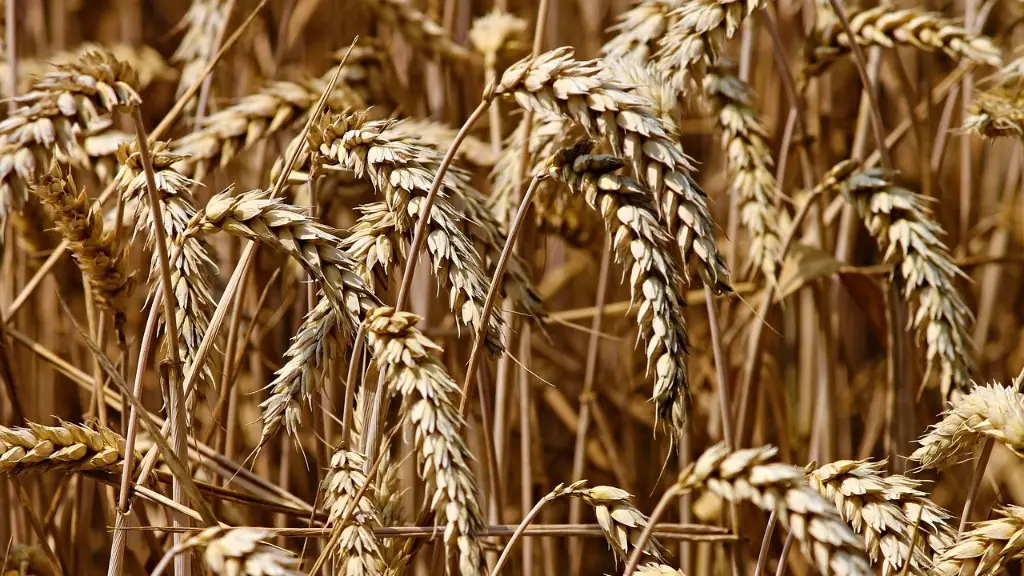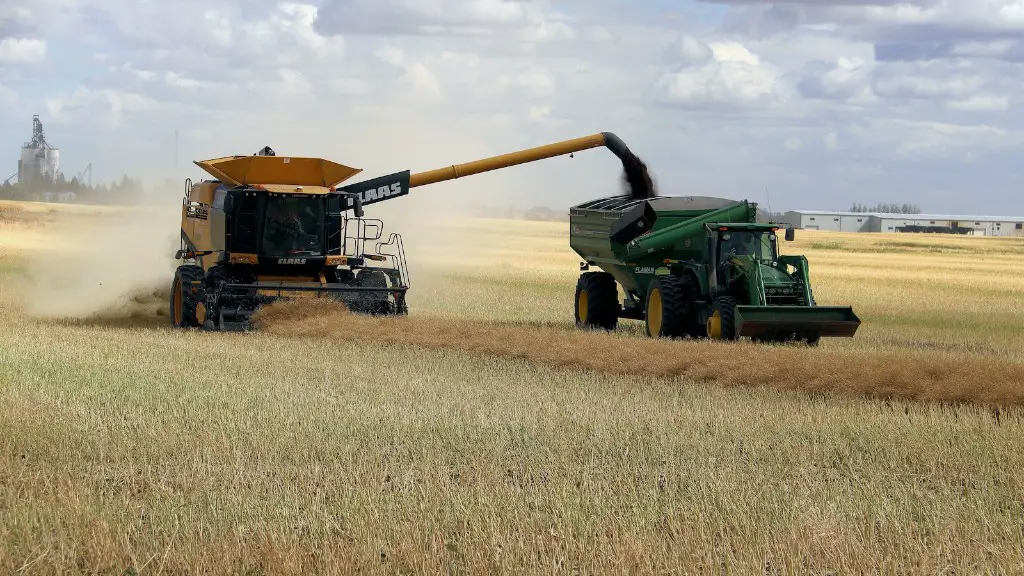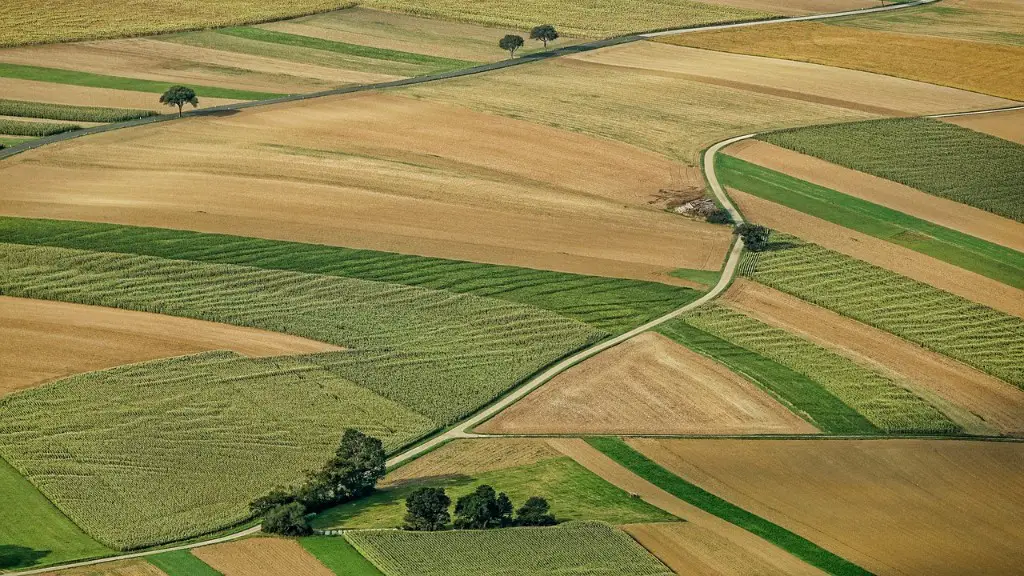Modern agriculture has had a profound effect on the environment. Agricultural practices have contributed to soil erosion, water pollution, and air pollution. The application of chemicals to crops and animals has also had an impact on the environment.
There are many effects of modern agriculture. One effect is that it has made it possible to produce larger quantities of food at a lower cost. This has helped to ensure that people have enough to eat and has improved nutrition worldwide. Modern agriculture has also had an impact on the environment, both positively and negatively. For example, it has helped to increase the amount of land that is available for food production, but it has also contributed to greenhouse gas emissions and the depletion of natural resources.
What are the different effects of modern agriculture?
Agriculture is one of the leading contributors to environmental issues that cause environmental degradation. The main issues caused by agriculture include: climate change, deforestation, biodiversity loss, dead zones, genetic engineering, irrigation problems, pollutants, soil degradation, and waste. Agriculture is responsible for a large part of the world’s greenhouse gas emissions, and is a major contributor to deforestation and biodiversity loss. Agricultural runoff is a leading cause of dead zones in the ocean, and irrigation can lead to serious water shortages. Agricultural chemicals can pollute groundwater and soil, and genetically engineered crops can have negative impacts on the environment. Soil degradation from agriculture is a major problem, and can lead to dust storms, desertification, and loss of productivity. Agricultural waste is also a major environmental issue, and can pollute air, water, and land.
The top fertile soil of the farmland is removed due to the excessive water supply. This leads to the loss of nutrient-rich soil that hampered productivity. It also causes global warming because the silt of water bodies induces the release of soil carbon from the particulate organic material.
What is the impact of modern agriculture on the environment
Agriculture is the leading source of pollution in many countries. Pesticides, fertilizers and other toxic farm chemicals can poison fresh water, marine ecosystems, air and soil. They also can remain in the environment for generations. These chemicals can have a devastating effect on the environment and human health.
While large-scale, conventional farming may yield high production levels, it also contributes to climate change, pollutes air and water, and depletes soil fertility. This system focuses on intensive single crop production, mechanization, and depends on fossil fuels, pesticides, antibiotics, and synthetic fertilizers.
What are positive effects of modern agriculture?
Organic farming has a number of benefits over traditional farming methods. One of the most significant is that it improves the fertility of the soil. This is because organic farmers use natural methods to replenish the soil, such as composting, rather than relying on synthetic fertilizers. This not only benefits the crops, but also the surrounding ecosystem.
Another advantage of organic farming is that it tends to be more cost-effective. This is because organic farmers often use less expensive inputs, such as recycled materials, and because they tend to have lower overheads. Moreover, organic produce is often in high demand, so farmers can charge a premium for their products.
Finally, organic farming has a lower impact on the environment. This is because organic methods generally result in less soil erosion and water pollution. Additionally, organic farms tend to have a more diverse range of plant and animal species, which helps to promote a healthy ecosystem.
The use of chemicals in farming, such as fertilisers and pesticides, has led to increased crop yields. However, this has also resulted in increased river pollution due to chemical run-off. On the other hand, fewer plants are being eaten by pests, so there are more crops to sell.
What are 2 issues facing modern agriculture?
The main environmental factors that can impact a farmer’s profits and productivity in any given growing season are the quality of the soil, the quality of the water, the climate, and the terrain. If any of these factors are not ideal, it can decrease the yields that a farmer is able to produce. For example, if the soil quality is poor, the plants may not be able to grow as well or may not have the same nutrient content. If the water quality is poor, the plants may not be able to get the hydration they need. If the climate is not ideal, the plants may not be able to thrive. And if the terrain is not ideal, the farmer may not be able to access the land as easily, which can impact productivity.
It is no secret that our food is becoming less and less nutritious. Contamination from pesticides, herbicides and fungicides are leeching the nutrient content out of our food. Not to mention, global conventional agriculture has some pretty negative social consequences – like land-grabbing, unfair working conditions, and excessive waste.
We need to start demand more nutrient-rich, organic foods from our farmers. And we need to be more mindful of the way our food is grown and sourced. Only then can we hope to improve the quality of our food – and our health.
What is the impact of agricultural modernization to the society
Modernization in the field of agriculture has increased food supply to mankind and has also played a significant role in raising the income of farmers and local economy. It has helped in the development of new technologies and improved management practices which has result in increased efficiency and productivity. Modernization has also lead to the development of new markets and increased global trade in agricultural products.
Agriculture can have a negative impact on the environment in a number of ways. Five of the most significant environmental effects are soil fertility loss, eutrophication of water bodies, deforestation, climate change and pesticide pollution.
Soil fertility loss is caused by the overuse of land for agricultural purposes. This can lead to a decline in the quality of the soil and a decrease in its ability to support plant growth.
Eutrophication of water bodies occurs when nutrients from agricultural runoff enter waterways and promote the growth of algae and aquatic plants. This can lead to the depletion of oxygen in the water, making it difficult for fish and other organisms to survive.
Deforestation is often associated with agriculture, as trees are cleared to make way for farmland. This can have a devastating impact on local ecosystems, as trees play an important role in the environment.
Climate change is another significant environmental effect of agriculture. Agricultural activities release greenhouse gases into the atmosphere, which contribute to the global warming trend.
Pesticide pollution is another environmental concern that is linked to agriculture. Pesticides can enter the environment and contaminate soil, water and air. This can be harmful to both humans and animals.
Why is agriculture important today?
Agriculture provides a significant portion of the world’s food and fabrics. Common agricultural products include cotton, wool, and leather. Additionally, agriculture provides wood for construction and paper products. The products and methods used in agriculture can vary significantly depending on location.
While modern agriculture has yielded many benefits in terms of increased food production, it has also had some negative impacts on the environment. Soil degradation, water pollution, and greenhouse gas emissions are some of the main problems caused by this type of farming.
Soil degradation occurs when the soil is no longer able to support crops due to loss of nutrients, decreased water-holding capacity, or other factors. This can be caused by overgrazing, excessive tillage, or incorrect fertilizer use. Water pollution from agriculture can come from runoff of pesticides and fertilizers, animal waste, or irrigation. And finally, agriculture is responsible for a significant portion of greenhouse gas emissions, primarily from livestock and rice production.
While these problems are significant, there are ways to mitigate them. Improved management practices, more efficient technology, and changes in crop mix can all help to reduce the negative environmental impacts of agriculture.
What are some examples of modern agriculture
Modern farming methods in India are becoming more and more popular due to the advantages they offer. One of the most popular methods is aeroponics, which is a method of growing plants without the use of soil in an air or mist environment. This method has many advantages over traditional methods, such as the fact that it requires less soil and does not require any form of soil. In addition, it is also very efficient in terms of water usage, as the roots of the plants are constantly kept moist. Another popular method is hydroponics, which is similar to aeroponics but uses less soil and does not require any form of soil. This method is also very efficient in terms of water usage, as the roots of the plants are constantly kept moist.
Climate change, soil erosion, and biodiversity loss are some of the main challenges facing the agricultural industry today. In order to meet these challenges, farmers must be willing to invest in farm productivity and adapt to changing consumer tastes and expectations. Agricultural producers must also work to protect and conserve our natural resources, while ensuring that their products are of the highest quality. By meeting these challenges, the agricultural industry can continue to provide the world with the food it needs.
What are 4 potential risks of modern agricultural practices?
The study found that there are four major visible impacts of climate change: occupational hazards, vector borne diseases, changing nutritional status, and inequity in development. Each of these impacts has serious consequences for human health and well-being, and they are all likely to become more severe as climate change progresses.
There is no one-size-fits-all solution to addressing the triple challenge of feeding a growing population, providing a livelihood for farmers, and protecting the environment. We need to take a holistic approach that considers all three challenges simultaneously.
One promising solution is to promote agroecological farming practices. Agroecology is an environmentally sustainable approach to agriculture that has the potential to address all three challenges at once. It involves using natural processes and local resources to improve crop yields, while also reducing the use of harmful chemicals andEnergy inputs.
small-scale farmers in particular stand to benefit from agroecological farming practices, as they are often the most vulnerable to the adverse effects of climate change and environmental degradation. Moreover, agroecology has the potential to empower women and marginalized communities, who are often the backbone of small-scale farming operations.
There is a growing body of evidence demonstrating the effectiveness of agroecological farming practices in addressing the triple challenge of feeding a growing population, providing a livelihood for farmers, and protecting the environment. We need to scale up these practices if we are to make sustainable progress on all three fronts.
What are negative impacts of agricultural technology
The use of agricultural technologies has had negative impacts on the environment through soil degradation, air and water pollution, loss of biodiversity, and the disruption of food webs. These technologies have led to an increased demand for land and water resources, and have resulted in the overuse of these resources. This has resulted in soil degradation, water pollution, and the loss of biodiversity. In addition, the use of agricultural technologies has resulted in the disruption of food webs, which has had a negative impact on the environment.
As societies modernize, the importance of the individual gradually increases, replacing the family, community, or occupational group as the basic unit of society. Division of labour, which is characteristic of industrialization, is also applied to institutions, making them more specialized. This shift has a number of important implications for society as a whole.
Conclusion
The effects of modern agriculture vary depending on the practices used. Generally, modern agriculture has led to an increase in the overall quantity and quality of food available, as well as a decrease in the price of food. However, it has also had negative impacts on the environment, including soil erosion, water pollution, and the loss of biodiversity. Additionally, it has contributed to the global problem of climate change.
There are a number of effects of modern agriculture. These include increased yields, increased efficiency, and increased environmental sustainability.





